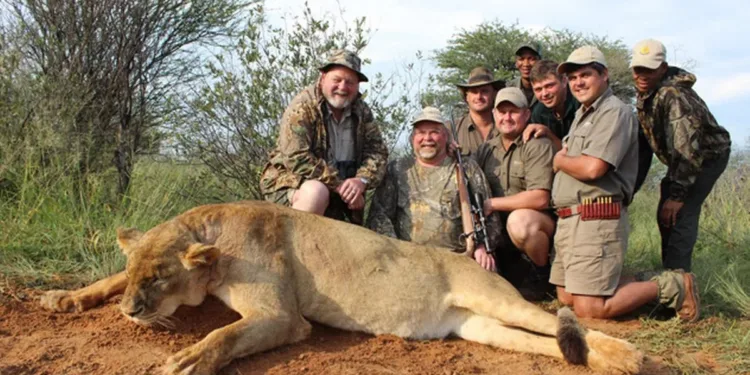Botswana communities residing near wildlife habitats within the country took to the streets to voice their opposition in a protest against an anti-hunting bill currently under consideration in the British House of Commons.
The protesters, motivated by their deep connection to the land and its wildlife, embarked on a march to the British High Commission in the capital city, Gaborone. Their primary objective was to deliver a petition expressing their concerns directly to the Commission, amplifying their stance against the proposed legislation.
This display of solidarity comes at a crucial juncture as Botswana prepares to dispatch a delegation to the United Kingdom, tasked with advocating against the impending bill.
Known as the Hunting Trophies (Import Prohibition) Bill, this legislation, slated for a second reading later this month, aims to prohibit the importation of wildlife trophies acquired through legal means from various African countries, including Botswana.
Also Read: Ethiopia To Champion Bitcoin Mining Despite International Climate Grants
How Will The Anti-Hunting Bill Affect The Botswana Communities Close To Wildlife Conservation Areas?
The bill, if passed into law, threatens to disrupt longstanding cultural practices and conservation efforts in Botswana, where sustainable trophy hunting has played a pivotal role in wildlife management and community livelihoods for decades.
The proposed import ban poses significant challenges not only to the country’s economy but also to its conservation strategies, as it could potentially undermine the delicate balance between wildlife conservation and human-wildlife coexistence.
In light of these implications, the Botswana communities directly impacted by this legislation are fervently expressing their opposition, emphasizing the integral role of trophy hunting in supporting local economies, funding conservation initiatives, and promoting wildlife conservation.
Their proactive engagement underscores the importance of considering diverse perspectives and collaborative solutions in addressing complex conservation challenges on a global scale.
Trophy Hunting is the practice of killing large animals such as elephants, lions and tigers for sport and hunters display the heads or other parts of the animals.
One of the organizers of the protest, Poniso Shamukuni spoke about the adverse effect of the bill. According to him, the livelihoods of communities living side-by-side with wildlife in Botswana will be negatively impacted.
He further said,
“We implore your government to carefully consider the implications of enacting the Hunting Trophies (Import Prohibition) bill. Such a decision could have far-reaching negative consequences on wildlife populations, exacerbate human-wildlife conflicts, undermine conservation efforts, and impact the livelihoods and well-being of communities residing in wildlife areas.”
In support of the protest, Amy Dickman, a professor of wildlife conservation at the University of Oxford, said lobbying groups pushing for the hunting ban have misled the British parliament.
“They have suggested these bans will help reduce wildlife extinctions. For example, they say the bans will undermine the livelihood of communities. All these things can be and should be rebutted with robust evidence that exists. It is a complicated topic; it’s science-specific. But actually, trophy hunting is not driving the extinction of any species you can find and it does contribute, importantly, to local revenues and the funding of major threats such as anti-poaching and habitat loss.”
The Botswana hunting season which runs from April to September has hosted several international hunters and they pay up to $50,000 to hunt species like elephants.
The hunters are only allowed to hunt ageing males so as not to affect the breeding of species, thereby leading to extinction.
Currently, The Botswana government issues about three hundred (300) elephant hunting licenses per year. Botswana communities earned a whooping three million dollars ($3 M) during last year’s hunting season, which, among other things, is used for conservation programs.
However, some of the protesters believe that the former President, Ian Seretse Khama is working with the U.K. lawmakers to enact the anti-hunting bill.
Will Botswana communities who are directly affected be able to keep their culture or lose it to the UK anti-hunting bill?










